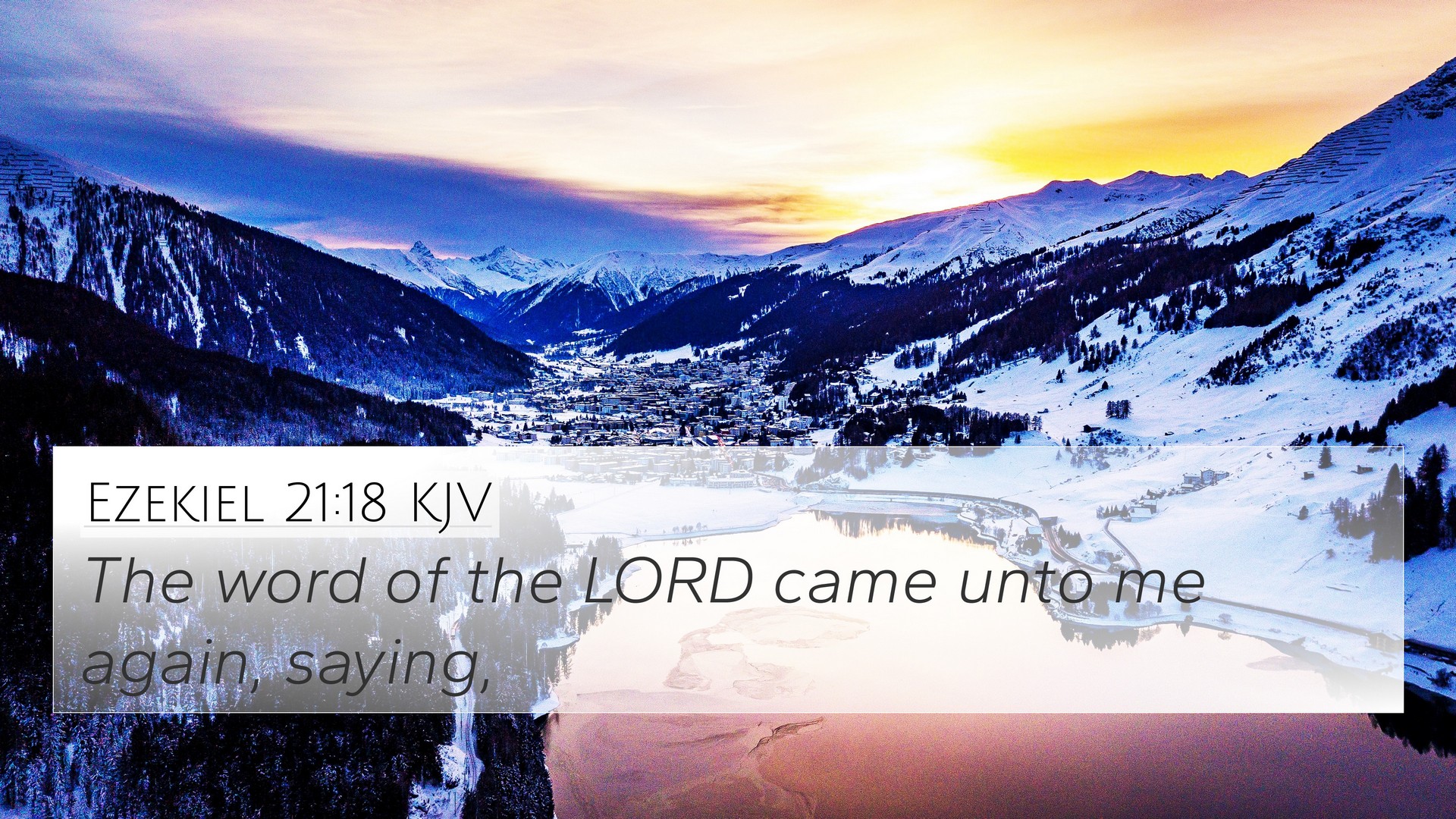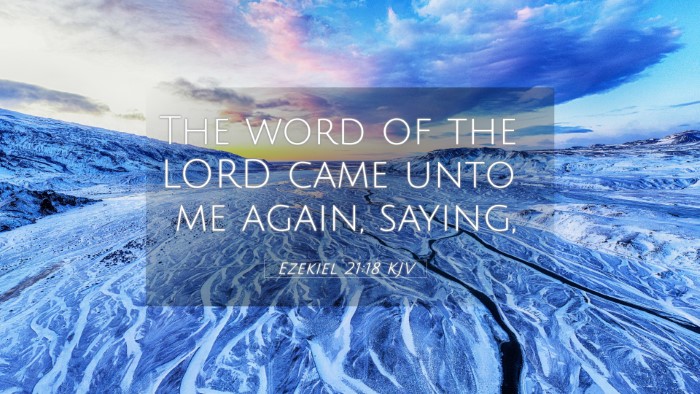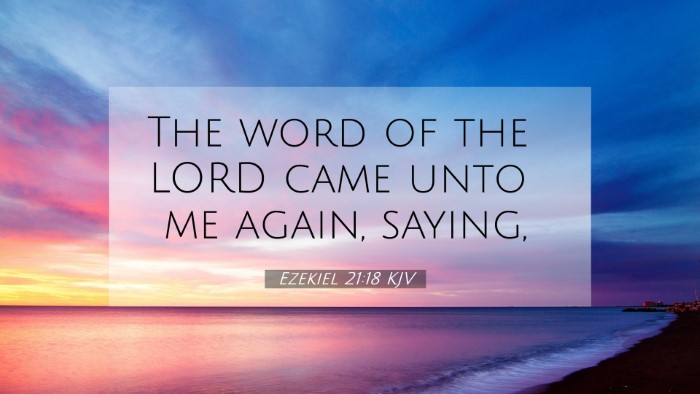Ezekiel 21:18 - Summary and Interpretation
Verse Reference: Ezekiel 21:18
In Ezekiel 21:18, the prophet Ezekiel conveys a message regarding the fate of Jerusalem in the context of divine judgment. This particular verse reflects on the impending doom of the city, emphasizing God’s sovereignty in administering justice among nations.
Understanding the Context
Ezekiel, a prophet during the Babylonian exile, speaks to the people of Israel about their unfaithfulness and the consequences that ensue. This prophetic message is unique in its vividness and directness, capturing the gravity of God's displeasure. The chapter elaborates on God's decree against Jerusalem and outlines the actions that will follow as a consequence of Israel's rebellion.
Commentatorial Insights
Matthew Henry's Commentary
Matthew Henry highlights the inevitability of judgment faced by both the people and city of Jerusalem. He emphasizes that divine judgment operates not just as an act of punishment but also serves as a revelation of God’s righteousness. Henry notes that the overwhelming weight of the impending judgment should compel the Israelites to repentance and acknowledgment of their transgressions.
Albert Barnes' Commentary
Albert Barnes provides an analysis of the imagery used in Ezekiel 21:18, indicating that the sword refers symbolically to war and destruction. He explains that this verse depicts the preparations for conflict, and the path toward inevitable defeat is marked by God's direct intervention. Barnes draws a connection to other prophetic literature that stresses the importance of recognizing God’s hand in historical events, particularly in judgment.
Adam Clarke's Commentary
Adam Clarke elaborates on the theme of disobedience leading to judgment, noting that the judgments described in Ezekiel serve to illustrate God's justice. He stresses the importance of internal reflection among the people, warning that spiritual blindness could lead them further into despair. Clarke encourages readers to see the verse as a call for self-examination and repentance.
Connections Between Bible Verses
Ezekiel 21:18 can be cross-referenced with the following verses to gain deeper insights into its themes and messages:
- Jeremiah 14:12 - Reflects the consequences of unfaithfulness and the futility of seeking help from other sources.
- Isaiah 34:3 - Another prophetic declaration of judgment against nations, emphasizing the thoroughness of divine retribution.
- Lamentations 1:8 - Expresses the sorrow of Jerusalem, resonating with the themes of loss and desolation.
- Ezekiel 18:30 - Calls Israel to repentance, tying back to the idea of judgment and the possibility of divine mercy.
- Daniel 9:12 - Acknowledges the fulfillment of God’s warnings through past judgments on Israel.
- Matthew 24:2 - Jesus foretells the destruction akin to that described in Ezekiel, illustrating continuity in prophetic warnings.
- Revelation 6:4 - The theme of conflict and judgment is palpable, echoing the destructive imagery of the sword in Ezekiel.
Integrating Biblical Themes
The themes present in Ezekiel 21:18 echo throughout the scriptures, inviting comprehensive Bible cross-referencing:
- Divine Sovereignty: A recurring theme throughout the Bible emphasizing God's control over human affairs.
- Judgment and Mercy: The balance between God’s judgment for sin and His desire for repentance is a constant biblical narrative.
- Prophetic Warnings: Various prophets, including Amos and Micah, emphasize the need for Israel to heed divine warnings.
- Spiritual Blindness: A common theme where God warns against turning a deaf ear to His call, as seen in Isaiah.
Practical Insights for Study
For those engaged in cross-referencing Bible study, Ezekiel 21:18 serves as an essential verse illustrating the dire consequences of disobedience. Here are some practical tools and methods to utilize:
- Utilize a Bible concordance to find related verses by topic.
- Employ a cross-reference Bible study guide for thematic exploration of related scriptures.
- Engage in a comparative Bible verse analysis to draw parallels between the Old and New Testaments.
- Incorporate inter-Biblical dialogue by examining how ideas thread through different authors and historical contexts.
Conclusion
In summary, Ezekiel 21:18 provides a poignant glimpse into God's message of judgment and calls for reflection. Through the combined insights of various public domain commentaries and cross-references, readers can appreciate the depth of this verse within the larger biblical narrative. Exploring such connections and themes not only enriches understanding but also encourages spiritual growth and readiness to engage with the divine message threatened throughout scripture.


